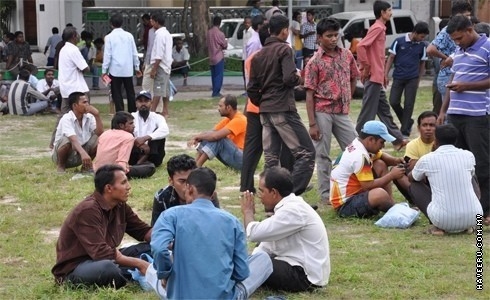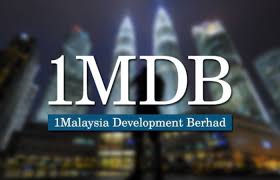
Bangladeshi workers in Maldives
16 June 2010. The Maldives has been placed on the US State Department watch-list for human trafficking, following the country’s failure to “investigate or prosecute trafficking-related offenses or take concrete actions to protect trafficking victims and prevent trafficking in the Maldives.”
The State Department’s 2010 Human Trafficking report, which comes less than a month after the Maldives was given a seat on the UN Human Rights Council, is scathing of government inaction, particularly regarding forced labour and exploitation of Bangladeshi nationals.
“An unknown number of the 110,000 foreign workers currently working in the Maldives – primarily in the construction and service sectors – face fraudulent recruitment practices, confiscation of identity and travel documents, withholding or non-payment of wages, or debt bondage,” the report noted.
The report noted that even legal workers were vulnerable to conditions of forced labor, and that the Maldives did not provide services such as shelter, counseling, medical care, or legal aid to foreign or Maldivian victims of trafficking.
Little progress had been made to identify and prosecute trafficking offenders, the report noted, classing three types: “families that subject domestic servants to forced labor; employment agents who bring low-skilled migrant workers to the Maldives under false terms of employment and upon payment of high fees; and employers who subject the migrants to conditions of forced labor upon arrival.”
The government had made “limited” efforts to enforce anti-human trafficking laws during the last year, the report said, noting that while the country did not have explicit laws prohibiting human trafficking, the Constitution forbade forced labour and slavery.
“However, the government did not investigate or prosecute any trafficking cases and the only prescribed penalty for labor trafficking offenses is a fine,” it observed.
Moreover, the report said that the Maldives may have “inappropriately incarcerated, fined, or otherwise penalised” unlawfully trafficked persons because of a lack of comprehensive victim identification procedures.
President of the Human Rights Commission of the Maldives (HRCM), Ahmed Saleem, said the US State Department’s report did not reflect well on the country.
“This doesn’t reflect well on us, and it’s an issue that has to be addressed. I’m glad the issue of trafficking has been recognised.”













